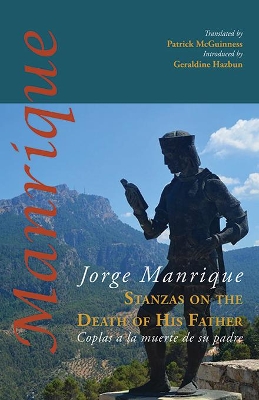Shearsman Classics
1 primary work
Book 32
Coplas a la muerte de su padre by Jorge Manrique (c.1440-79) is one of the most celebrated poems in the Spanish language. Written shortly before the poet's death, it is a dignified elegy that speaks not just of a personal loss, that of the poet's father Rodrigo Manrique (d.1476), but of the evanescence of all things. Its popularity is aided by memorable lines, not least the two opening metaphors: man's life is a river meandering unto the sea of death, and this world is the road to the next, the lasting dwelling place. The poem replicates these reflections in its wending form. Its forty stanzas each comprise four tercets; each tercet is made up of two longer octosyllabic verses combined with one four-syllable half-line known as pie quebrado. These regular broken lines, like beats of a heart, invest the poem with a resonant quality befitting the injunction at the opening of the poem to awaken one's slumbering soul to the passage of time.
